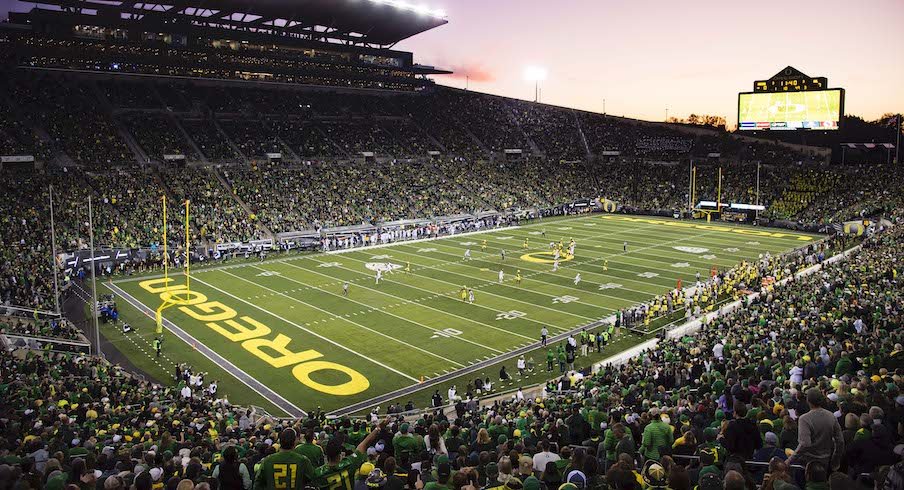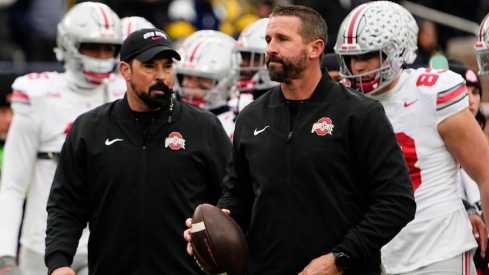If you were planning on making the trip to Eugene for Ohio State's game at Oregon on Sept. 12, you might want to put those plans in hold.
Oregon Gov. Kate Brown announced Thursday that the Oregon Health Authority “is advising that any large gathering, at least through September, should be canceled or significantly modified,” according to Matt Prehm of 247Sports' Duck Territory.
“Large gatherings, including live sporting events with audiences, concerts, festivals, and conventions will not be able to return until we have a reliable treatment or prevention like a vaccine,” Brown said.
The University of Oregon announced last week that it is planning to have students on campus this fall, leaving the door open for the Ducks' game against the Buckeyes at Autzen Stadium to be played as scheduled. But it remains unclear whether the college football season will start on time – and if it does, whether some conferences might start before others.
Given that the game is still four months away, it's also possible suggested restrictions could be lessened between now and then. As of now, though, it appears unlikely that Oregon will be able to host a sellout crowd at Autzen Stadium – which certainly would have been expected for the game against the Buckeyes – for any games in September.
If the season is played as scheduled, Ohio State's Sept. 12 game at Oregon will be its second game of the 2020 season, following its season opener against Bowling Green at Ohio Stadium on Sept. 5. Oregon is scheduled to make the return trip to Ohio Stadium in the second week of the 2021 college football season (Sept. 11).
Per the terms of the contract signed between the two teams in 2012, each team is scheduled to pay the other team $300,000 for its trip to the other team's stadium, while also providing 4,000 tickets to the visiting team. According to the “force majeure” clause within the contract, a cancellation of the game due to “any order of government, military or public authority” would not be deemed a breach of the contract, but that only applies “if it becomes impossible to play the game” and would not change the schools' obligations for subsequent games “except as agreed by the parties.”


